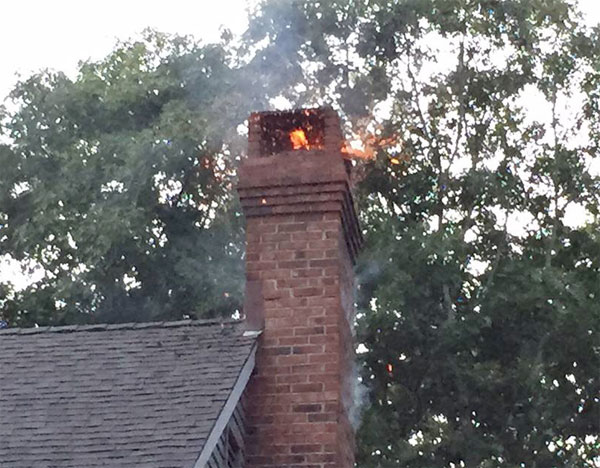 The chimney and flue, as part of the fireplace, has a particular function which is to carry the dangerous flue gasses from fireplace, wood stove or furnace safely out from the house. Over the time those can get dirtier and it will damage the structures and further, it will destroy the house and kill people. The indication of chimney fire such as it has loud cracking and popping noise, produce a lot of dense smoking and intense hot smell.
The chimney and flue, as part of the fireplace, has a particular function which is to carry the dangerous flue gasses from fireplace, wood stove or furnace safely out from the house. Over the time those can get dirtier and it will damage the structures and further, it will destroy the house and kill people. The indication of chimney fire such as it has loud cracking and popping noise, produce a lot of dense smoking and intense hot smell.
Prevent Chimney Fires
Chimney fires can burn explosively, noisy and dramatic enough to be detected by neighbors or people passing by. But, the majority of chimney fires go undetected and slow-burning chimney fires don’t get enough air or have fuel to be dramatic or visible and they often go undetected until a later chimney inspection, but, the temperatures they reach are very high and can cause as much damage to the chimney structure
The tips on this list are all things we have done over the years to prevent a chimney fire.
- Clean the chimney on the regular basis
Always provide tools (such as brushes and extension rods), so whenthe stove pipe is getting clogged up and needs to be cleaned those can be used. When our stove is consistently not drafting well and smoke comes out the door rather than drafting up the stove pipe, then it is time to clean it out. It is worth to note that this job is not a safe option for everyone.
- Use dry wood
If the wood is wet or not fully cured, it will not burn as hot as dry wood. It will also smoke more. Burning wet wood leads to creosote, a substance that contributes to a chimney fire, building up faster in the chimney.
- Burn the wood stove in the “burn zone” daily
If burningthe wood stove hot enough on a regular basis, it will help prevent the build-up of creosote.
Wood stoves and fireplaces offer wonderful warmth and can help save money heating the house, but at the same time, they can be dangerous if proper maintenance is unknown and not executed. So in order to make the house to stay cozy, warm and safe at home, always pay attention to the chimney and flue.
Last but not least, clean chimneys don’t catch fire. Make sure a CSIA Certified Chimney Sweep inspects the solid fuel venting system annually, and cleans and repairs it whenever needed. The sweep may have other maintenance recommendations depending on how the usage of the fireplace or stove. CSIA recommends that to call on CSIA Certified Chimney Sweeps since they are regularly tested on their understanding of the complexities of chimney and venting systems.
